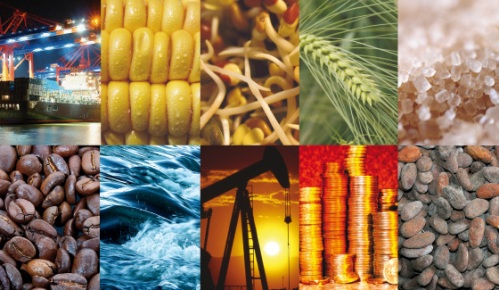
China Nurtures Futures Markets in Bid to Sway Commodity Prices – WSJ
ZHENGZHOU, China — Chinese leaders are concerned that their nation’s enormous economic expansion is becoming an excuse for foreign suppliers to inflate commodity costs. So, they hope to use their three futures exchanges to fight back.
“It is true we have a long-term goal of increasing our influence in terms of pricing, but to do that we have to create conditions and do it step by step,” Jiang Yang, chief futures-industry policy maker and assistant chairman of the China Securities Regulatory Commission, said in an interview. “But as the Westerners say: ‘Rome was not built in a day.’
But Beijing believes hosting big futures markets will enhance the country’s economic security by essentially advertising what the world’s biggest customer for some commodities considers a fair price. For the rest of the world, the exchanges could mean less guesswork about China’s buying habits, possibly reducing volatility in the global market.
Silver Lining: Jim Rogers Talks Up Commodities – Time Magazine
Jim Rogers’ daughters may not have been born with silver spoons in their mouths, but they’ve got them now. Not silver spoons, exactly, but silver bullion. “My little girls don’t own stocks — they own commodities,” he says, “and that’s why they’ll be able to take care of me in retirement.”
Rogers sees three big secular trends now, and he’s acting on all of them. First, America’s role as the dominant economic power is declining, so why own American stocks? (He doesn’t.) Second, China is emerging, and even though it may have crises from time to time, it is a good place to invest. (He does.) Third — and this is the biggie — emerging nations including China are greatly increasing the future demand for commodities such as oil. (He’s in with both feet.)
“Thirty years ago, 3 billion people were not even participating in the world economy, and now they are trying to live like we do,” he notes. That emerging megaforce, says Rogers, will put a supertight squeeze on commodity prices across the board, from beef to bullion.
Oil Climbs Above $73, Nat. Gas Rallies as Equities Fly High – Rigzone
Jumping toward $74 a barrel on an American holiday, crude oil rallied more than $1 from last week’s closing price, bolstered by a weaker dollar and a rise in the equities market. Also gaining today, natural gas closed 12 cents below $5 as the energy commodity continues to strengthen despite bearish fundamentals.
After rallying to an intra-day high of $73.84, the price of crude oil settled slightly lower to $73.27 on the NYMEX Monday, a gain of $1.50 from Friday’s close. Additionally, the US dollar eased against a basket of foreign currencies, helping to spur a rally in today’s commodity prices.
China Iron Ore Imports Exceed Real Demand, CISA Says – Bloomberg via Chinamining.org
Iron ore imports by China, the world’s largest buyer, have exceeded real demand by 50 million metric tons this year, the country’s steel association said.
China’s iron ore imports surged to a record this year, hurting the group’s bid to negotiate a contract price cut bigger than the 33 percent offered by Rio Tinto Group and BHP Billiton Ltd. The nation is looking at cutting the number of licensed importers, industry minister Li Yizhong reiterated today.
Read Full Post »




